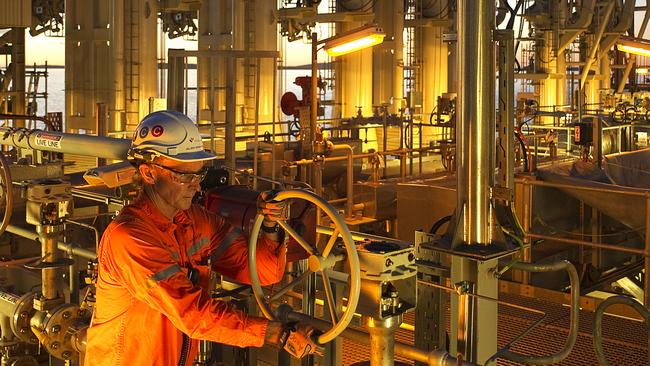Gas giants call for clarity on climate policy as big calls loom
Woodside Petroleum and Santos have demanded Canberra chart a clear course on climate policy.

Australia’s largest gas producers, Woodside Petroleum and Santos, have called for more responsible and clearer direction from the Coalition on climate and energy policy as they weigh looming investment decisions.
Both companies argue their large LNG portfolios are part of the solution towards cleaner energy but Woodside said more needs to be done at a national level to help cut carbon emissions on a global basis.
“Regardless of the election outcome, Australia will need responsible policy that supports long-term sustainable development. To be effective, that policy must be determined at the national level, in support of international action,” Woodside chairman Richard Goyder said. “As we approach big investment decisions, the board is thinking deeply and critically about the company’s future in the decades to come. We are thinking not only about the global role of LNG in a cleaner energy mix but also about what steps Woodside can take to mitigate environmental impacts from our own operations.”
Woodside stepped up calls for a carbon pricing regime last month to help deliver on the goals of the Paris climate accord.
The Perth-based producer is weighing investment decisions on three critical West Australian projects: Scarborough, Pluto 2 and its long-delayed Browse development as it looks to help fill an LNG supply gap seen emerging by 2024 or 2025.
Santos also criticised the government over the lack of policy direction.
“People want to see action and I think people are frustrated generally that there’s been a lack of action,” Santos chairman Keith Spence said. “We’ve seen a change in policies at a federal level and with no uniform direction. We’ve had no stable policy around climate change so I think we’ve taken things into our own hands.”
Santos has outlined a plan to boost its LNG exports to 4.5 million tonnes by 2025 as a way of displacing coal from the generation mix in Asia.
Chief executive Kevin Gallager said the company’s shareholders were not particularly divided over climate change issues.


